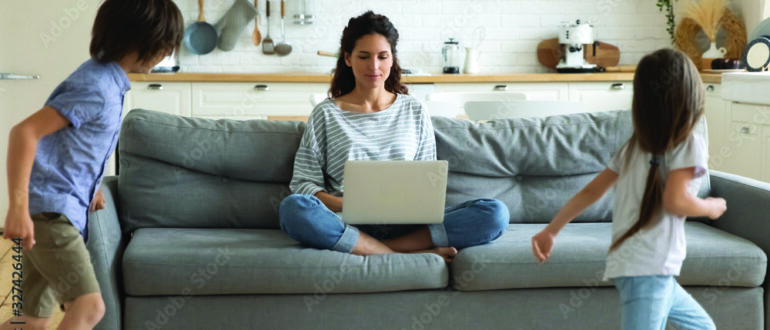Amid a longstanding youth mental health crisis exacerbated by the COVID-19 pandemic, JFSNENY is offering a new way to support children and teens with mental health concerns — by providing their parents with the tools to do so.
Individual therapy is widely assumed to be the standard of care for mental health challenges, yet it is often not available to young people due to the constraints of their school schedules and a national shortage of clinicians trained to work with them. To address these challenges, JFSNENY is offering the SPACE intervention model.
What is SPACE?
SPACE is Supportive Parenting for Anxious Childhood Emotions and was developed by Dr. Eli Lebowitz at the Yale Child Study Center. It has been tested and found to be efficacious in randomized controlled clinical trials.
When is SPACE appropriate?
SPACE treatment is appropriate when parents have concerns about:
- Separation anxiety
- Social anxiety
- Generalized anxiety
- Fears and phobias
- Panic
- Obsessive-compulsive disorder
When SPACE treatment is successful children feel less anxious and function better following treatment, especially for some of these most common anxiety issues that children face.
What happens in SPACE treatment?
The SPACE program addresses challenges by working directly with parents who want to help their children be less anxious but don’t know how.
Parents will learn skills and tools to help their child overcome anxiety, OCD or related problems by focusing on changes that parents can make to their own behavior.
The two main changes that parents learn to make in SPACE treatment are to:
- respond more supportively to their anxious child and
- reduce the accommodations they have been making to the child symptoms.
The treatment is an active process with opportunities to practice and role play the skills being taught so parents can feel empowered to make meaningful and lasting changes.
Appointment Information & Scheduling at JFS
The SPACE program lasts approximately 12, 55-minute sessions (weekly or bi-weekly) with the parent(s) of the children and are covered by most major insurances. Click here to see accepted insurance plans.
To participate in this unique program, please request a free consult with any of our JFS clinicians:
Additional Information: Pediatric Anxiety Deserves Effective Treatment
Why do we need more treatment options for pediatric anxiety? Anxiety is the most common mental health concern for children. Approximately 30% of children will suffer from clinical levels of anxiety sometime throughout their childhood and, depending on the study cited, between 5% and 15% of children suffer from anxiety at any given moment.
Why to be concerned?
4 million children and adolescents in this country suffer from a serious psychiatric issues that causes significant functional impairments at home, at school, and with peers
- Anxiety disorders affect one in eight children. Anxiety disorders also often co-occur with other disorders such as depression, eating disorders, and ADHD
- Anxiety disorders are highlytreatable, yet only about one-third of those suffering receive treatment
- Untreated children with anxiety disorders are at higher risk to perform poorly in school, miss out on important social experiences, and engage in substance abuse.
- Untreated Anxiety in the 1stgrade has been shown to predict anxiety and low academic achievement in reading and math in the 5th grade (Ialongo et al, 1995)
- Anxiety or depression (untreated) in adolescence predicts a 2-3x increase risk of anxiety or depression in adulthood (Pine et al, 1998)
- There are many different types of anxiety disorders, including separation anxiety, generalized anxiety, social anxiety, selective mutism, OCD, phobias, panic disorder, trichotillomania/dermatillomania, health anxiety, PTSD
Source: NAMI, NIMH, CDC and the ADAA

